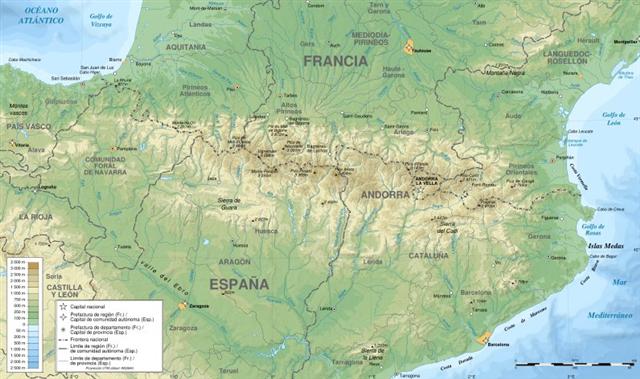In my early teens I happened to read in the Swedish version of Reader's Digest about some villages up in the Pyreneean Alps which clearly were distributed in the geography according to the distribution of some stars in the sky.
I was fascinated, but I have not been able to find the article again. "... In classical mythology, Pyrene is a princess who gave her name to the Pyrenees. The Greek historian Herodotus says Pyrene is the name of a town in Celtic Europe. According to Silius Italicus, she was the virginal daughter of Bebryx, a king in Mediterranean Gaul by whom the hero Hercules was given hospitality during his quest to steal the cattle of Geryon during his famous Labors. Hercules, characteristically drunk and lustful, violates the sacred code of hospitality and rapes his host's daughter. Pyrene gives birth to a serpent and runs away to the woods, afraid that her father will be angry. Alone, she pours out her story to the trees, attracting the attention instead of wild beasts who tear her to pieces. After his victory over Geryon, Hercules passes through the kingdom of Bebryx again, finding the girl's lacerated remains. As is often the case in stories of this hero, the sober Hercules responds with heartbroken grief and remorse at the actions of his darker self, and lays Pyrene to rest tenderly, demanding that the surrounding geography join in mourning and preserve her name: 'struck by the Herculean voice, the mountaintops shudder at the ridges; he kept crying out with a sorrowful noise Pyrene! and all the rock-cliffs and wild-beast haunts echo back Pyrene! … The mountains hold on to the wept-over name through the ages ..." (Wikipeida, also the map above) We recognize the theme of limbs torn apart and spread around the countryside, e.g.: ... the two women placed Osiris's coffer on a boat, and when the goddess Isis was alone with it at sea, she opened the chest and, laying her face on the face of her brother, kissed him and wept. The myth goes on to tell of the blessed boat's arrival in the marshes of the Delta, and of how Set, one night hunting the boar by the light of the full moon, discovered the sarcophagus and tore the body into fourteen pieces, which he scattered abroad ... The four bereaved and searching divinities, the two mothers and their two sons, were joined by a fifth, the moon-god Thoth (who appears sometimes in the form of an ibis-headed scribe, at other times in the form of a baboon), and together they found all of Osiris save his genital member, which had been swallowed by a fish ... Maybe this was the reason for the distribution of the villages. Limbs are like stretches of time, like periods in the calendar. And the calendar is mapped from the stars. The great period of Spring Sun (Hercules), for example, is a giant single 'leg'. |
